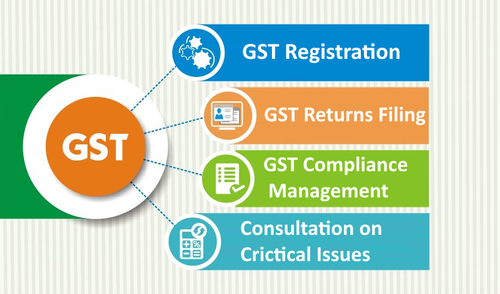The Ultimate Guide to Streamlining the GST Registration Process and Needs for Small Service Owners

Recognizing GST Basics
To realize the principles of the Goods and Services Tax (GST) system, tiny service proprietors must first recognize its underlying ramifications and concepts. GST is a value-added tax obligation imposed on many products and solutions for residential intake. It aims to enhance the taxation process by replacing several indirect taxes enforced by the state and main federal governments. Under the GST program, services are needed to register and accumulate tax in support of the government, making certain openness and compliance.
Among the key concepts of GST is input tax obligation credit score, which enables services to claim credit scores for taxes paid on their purchases. This mechanism protects against the cascading result of tax obligations and promotes efficiency in the tax system. Additionally, GST is a destination-based tax obligation, indicating that the tax is imposed at the factor of consumption rather than the factor of beginning. This makes certain reasonable circulation of tax obligation revenue amongst states based on where the services or products are eaten. Recognizing these standard principles is critical for small company proprietors to browse the complexities of the GST system and make sure conformity with the law.
Qualification Criteria for Registration
Having actually developed a fundamental understanding of GST principles, tiny company owners should now meet specific eligibility requirements to continue with the enrollment procedure. In India, entities involved in the supply of goods or services with an annual accumulation turnover going beyond Rs. 40 lakhs (Rs. 10 lakhs for special category states) are needed to sign up for GST. In addition, specific organizations such as those included in inter-state supply of goods, laid-back taxed individuals, and those called for to pay tax under the reverse cost system must sign up for GST irrespective of their turnover. In addition, businesses that were signed up under the previous tax program (BARREL, service tax obligation, etc) are also mandated to sign up under GST. Farming businesses that only provide produce out of main manufacturing are excluded from GST enrollment. It is crucial for company owner to carefully analyze their qualification based upon these criteria to guarantee compliance with the law and stay clear of any fines for non-compliance.
Papers Needed for GST Enrollment

Simplified Registration Process Actions
Complying with the collection and verification of the requisite records, the registration procedure for GST can be navigated with a series of streamlined steps created to assist in effective compliance for his explanation small service owners. Upon successful confirmation, an Application Reference Number (ARN) is issued, suggesting the completion of the GST enrollment process. By following these streamlined steps, small service proprietors can effectively sign up for GST and make sure compliance with tax policies.
Tips for Ensuring Conformity
To maintain regulative adherence and functional stability, diligent oversight and aggressive steps are crucial in making sure compliance with GST requirements for little business proprietors. Small company owners have to stay upgraded with GST regulations, filing deadlines, and any modifications in tax rates to stay clear of penalties and keep a great standing with tax authorities. One necessary suggestion for conformity is to keep thorough and exact documents of all transactions, consisting of billings, receipts, and costs connected to GST. Consistently integrating economic records with GST returns can assist in determining and remedying any discrepancies promptly. Furthermore, carrying out regular internal audits or looking for professional help can make certain that the organization is following all GST regulations correctly. It is also crucial for small company proprietors to invest in GST-compliant audit software application that can enhance the tax obligation filing procedure and lessen errors. Lastly, participating in GST understanding workshops or training programs can improve understanding and conformity with GST policies, ultimately profiting business over time.
Verdict
Finally, local business owners need to comprehend the basics of GST, satisfy the qualification requirements, gather necessary documents, and follow the streamlined enrollment procedure steps to make sure compliance. By streamlining the GST registration process and needs, the original source local business owners can prevent penalties and run their companies efficiently within the legal framework - Singapore GST Registration. It is important for local business owners to stay compliant and educated with GST guidelines to maintain a successful company procedure
Little business proprietors seeking GST enrollment need to ensure they gather and send the needed records to complete the enrollment process efficiently. The papers required for GST registration generally consist of evidence of company enrollment or incorporation, PAN (Irreversible Account Number) card of the business identification, address and entity evidence of the promoters/partners/directors, photos, address proof of the area of organization, bank account statements or canceled cheques, and authorization kinds. Participating in GST awareness workshops or training programs can enhance understanding and conformity with GST policies, eventually profiting the company in the lengthy run.
By streamlining the GST registration procedure and requirements, small company proprietors can stay clear of penalties and operate their companies efficiently within the lawful structure. It is important for tiny service owners to stay informed and compliant with GST policies to preserve an effective company procedure.